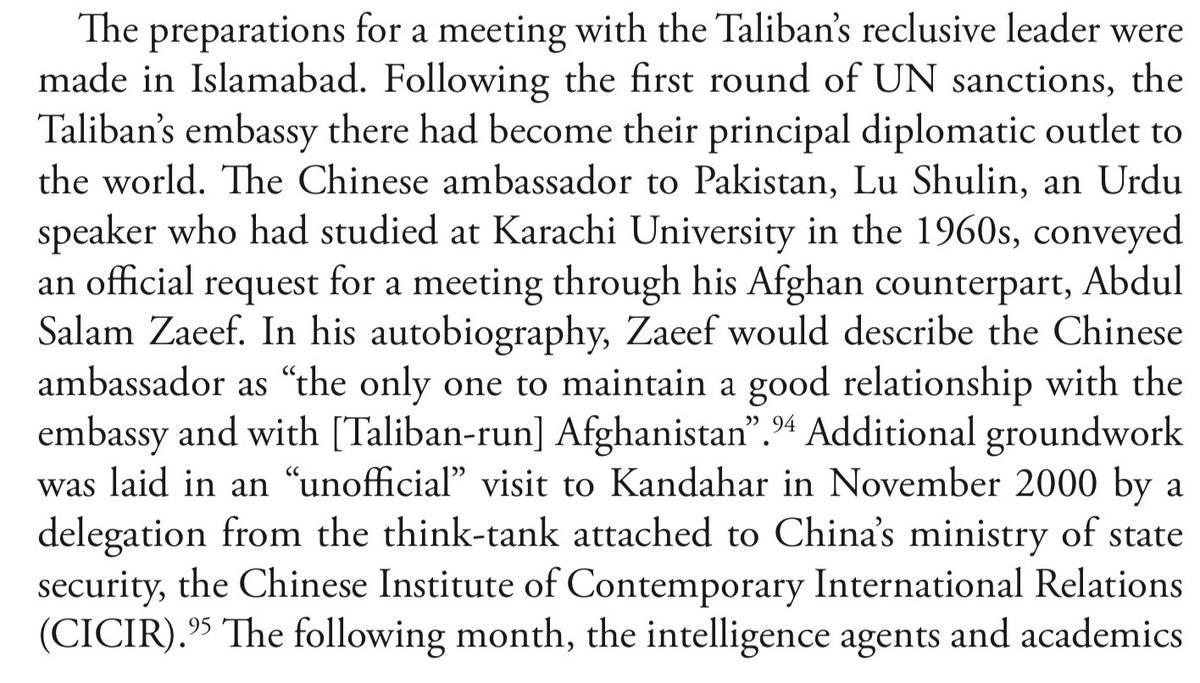
So this piece seriously doubles down on the "China didn't know Russia was going to invade" argument. As Yun Sun says, that would reflect some interesting things about the Xi-Putin relationship, Chinese intelligence etc. if true. But... 1/
https://twitter.com/Lingling_Wei/status/1498365620173389827
Even if one doesn't credit the account widely circulated in diplomatic circles (cited here bloomberg.com/news/articles/…) that Xi asked Putin to hold off any invasion until after the Olympics, there are alternatives that arguably fit the facts better than China getting "played" 2/
For a start, Xi can perfectly plausibly have been given a heads-up by Putin without thinking that this needed to be shared so widely that Jin Canrong and Shen Yi got to know about it... 3/
The piece credibly argues that China may have thought that Russia would use the threat of invasion for coercive purposes (others did too). But if Moscow did invade, China may also have thought that the intervention would be fast, light touch, and successful 4/
The Chinese government was positively impressed by both the annexation of Crimea and the Syrian intervention, and Xi may have trusted that Russia could execute this according to plan (they were hardly alone in this) 5/
There are other contexts in which Beijing has been been reassured by its friends that "we've got this handled" in theaters that China doesn't really understand very well and goes along with it (Chinese nationals have been exposed to harm in these cases too) 6/
It is certainly clear that China didn't like to be seen to be an "accomplice" to Russia even back in January - hence the hard pushback on the Bloomberg piece - and that as they have seen the costs of that perception going up, they have started trying to undercut it more actively
China probably didn't expect to get so much blame for this either. A reasonable assumption was: the Americans and Europeans either get distracted from China altogether as they focus on Russia; or fall into wishful thinking that Beijing might somehow prove helpful 8/
Instead China found itself being treated as part of a threat continuum with Russia 9/
https://twitter.com/ajwsmall/status/1495000920790290436
The problem with the Putin-Xi meeting and the joint statement was not (at least for many European officials) whether Xi gave a green light to the invasion; it was a combination of the backdrop in which the statement was released and the explicit backing for Russian demands 10/
The proposals that China "supports" in the joint statement are not just about Ukraine itself but demands to roll back virtually the entire post Cold War security order in Europe. They had plenty of time to see the reaction to the proposals and knew what they were signing up to 

In the run-up to the invasion, the push from the European side to China was not so much "be helpful" as "don't actively make things worse". To no avail. The perception was that China was behaving as an active enabler. 12/
Even if Beijing is now sufficiently concerned about the Russian invasion and the risks of their being associated with it that they've marginally tapered things back, none of this is likely to be forgotten in the wider context of Europe's dramatic foreign policy overhaul... 13/13
• • •
Missing some Tweet in this thread? You can try to
force a refresh













